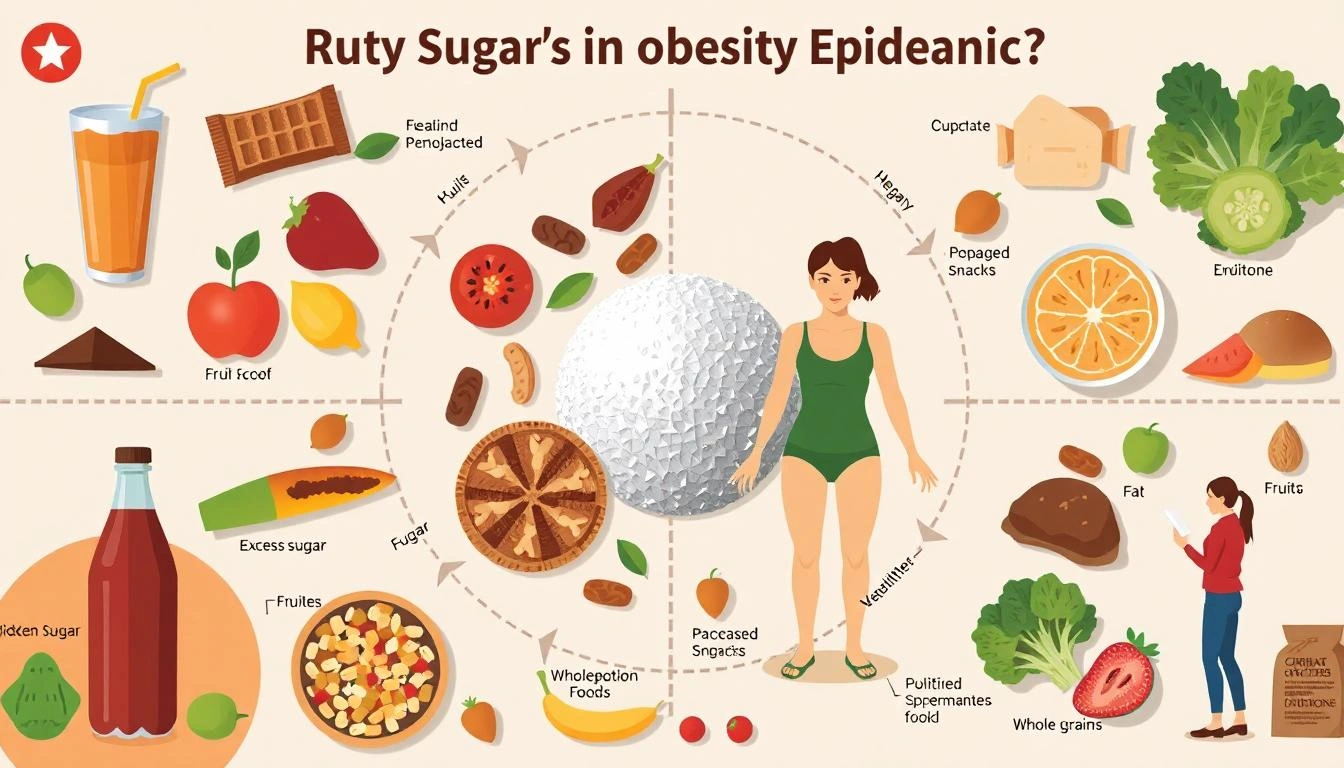Welcome to the world of sugar and its impact on obesity! Did you know that the sugar in your favorite treats and drinks could be contributing to weight gain? In this article, we’ll explore the connection between sugar consumption and obesity, uncover hidden sugars in processed foods, and discuss how added sugars can affect your metabolism. By understanding the effects of sugar on your body, you’ll be better equipped to make informed choices about your diet and overall health. So sit back, relax, and let’s dive into the sweet (pun intended) world of sugar and obesity!
The Link Between Sugar Consumption and Weight Gain
Hey there! Ever wonder why that extra scoop of ice cream or can of soda seems to stick around your waistline? Well, let’s talk about the link between sugar consumption and weight gain.
When you consume excess sugar, your body converts it into fat for storage. This can lead to weight gain over time, especially if you’re not burning off those extra calories through physical activity. Additionally, sugary foods and drinks often lack essential nutrients, leaving you feeling hungry and craving more sugar.
By cutting back on sugary treats and opting for healthier alternatives like fruits and whole grains, you can help manage your weight and improve your overall health. Remember, moderation is key when it comes to enjoying sweets!
Hidden Sugars in Processed Foods
Hey there! Did you know that sugar hides in so many of the foods we eat every day? It’s not just in the obvious sweet treats like cookies and soda, but also in foods you might not expect. Things like salad dressings, sauces, and even bread can be loaded with hidden sugars.
When you’re trying to cut back on sugar, it’s important to read labels carefully. Look out for ingredients like high fructose corn syrup, dextrose, and maltose – these are all just sneaky names for sugar. Opt for whole foods whenever possible and cook from scratch to have more control over what goes into your meals.
Being aware of hidden sugars is the first step in reducing your intake and taking control of your health. So, next time you’re grocery shopping, keep an eye out for those sugar-loaded culprits!
Impact of Added Sugars on Metabolism
Sugar, especially in the form of added sugars found in processed foods and sugary beverages, can have a significant impact on your metabolism. When you consume excessive amounts of sugar, your body may struggle to regulate blood sugar levels, leading to insulin resistance and potential weight gain. Additionally, high sugar intake can contribute to inflammation in the body, which can further disrupt metabolic processes. To combat these effects, it’s important to be mindful of your sugar consumption and opt for whole, unprocessed foods whenever possible. Prioritize fiber-rich foods, lean proteins, and healthy fats to support a balanced metabolism. Remember, moderation is key when it comes to sugar intake for overall metabolic health.
Sugar’s Effect on Appetite and Cravings
Have you ever noticed how one cookie can quickly turn into three or four? That’s not just lack of willpower – sugar actually has a powerful effect on our appetite and cravings. When we consume sugary foods, our blood sugar levels spike, causing a surge of energy followed by a crash. This rollercoaster ride can leave us feeling hungry and craving more sugar to boost our energy levels again.
Additionally, sugar can hijack our brain’s reward system, making us crave more and more of it. This can lead to overeating and weight gain in the long run. To combat these effects, it’s important to be mindful of your sugar intake and opt for whole foods that are lower in added sugars. Incorporating protein, fiber, and healthy fats into your meals can help stabilize blood sugar levels and reduce cravings for sugary treats.
So, you want to cut down on your sugar intake? That’s a great decision for your health and well-being! Here are some strategies to help you reduce the amount of sugar in your diet:
- Read Labels: Start by checking food labels for hidden sugars like high fructose corn syrup, cane sugar, or maltose. Be on the lookout for terms like “low-fat” or “diet” which often mean more sugar has been added to compensate for flavor.
- Swap Out Sugary Drinks: Replace sugary beverages like soda, energy drinks, and sweetened teas with water, unsweetened herbal tea, or infused water for a refreshing and sugar-free alternative.
- Choose Whole Foods: Opt for whole foods like fruits, vegetables, lean proteins, and whole grains instead of processed foods which are often loaded with added sugars.
- Plan Ahead: When grocery shopping or meal prepping, plan your meals and snacks in advance to avoid reaching for sugary treats out of convenience or cravings.
Public Health Initiatives to Address Sugar Consumption
Hey there! So, you might be wondering what’s being done on a larger scale to tackle the issue of sugar consumption and its impact on health. Well, public health initiatives are playing a vital role in raising awareness and promoting healthier choices when it comes to sugar intake.
- Sugar Taxes: Some countries have implemented taxes on sugary beverages to reduce consumption and fund health programs.
- Nutrition Labeling: Governments are pushing for clearer labeling on food products to help consumers make more informed decisions about their sugar intake.
- Educational Campaigns: Public health campaigns are being launched to educate people about the risks of excessive sugar consumption and how to make healthier choices.
By supporting these initiatives and making mindful choices in your own life, you can be a part of the movement towards a healthier, lower-sugar future! Remember, small changes add up to big results. Stay informed, stay healthy!


